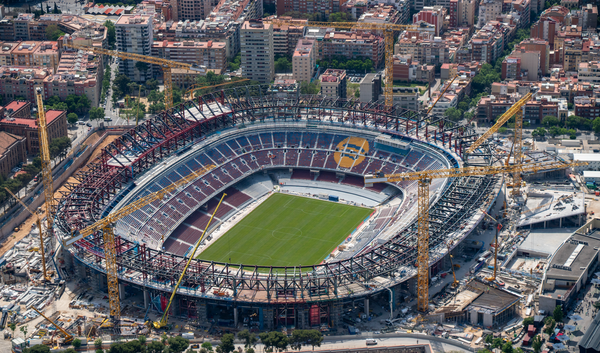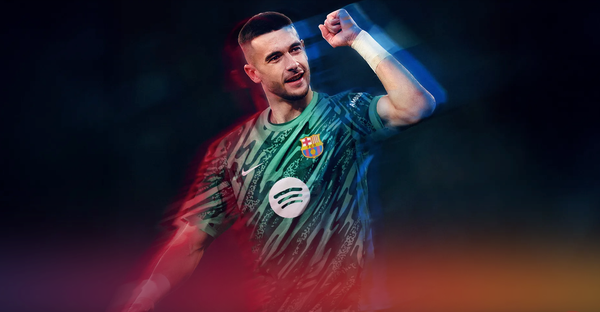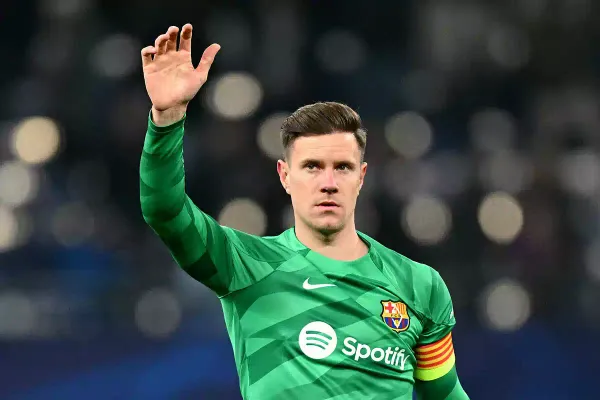Barca-Rayo: A frustrating outing with some silver linings?
Expectations weren't high among Barca fans for the Rayo fixture, given Xavi has never really beaten them in his coaching tenure. But, for most parts of this game, Barca seemed a bit more fluid and reactive
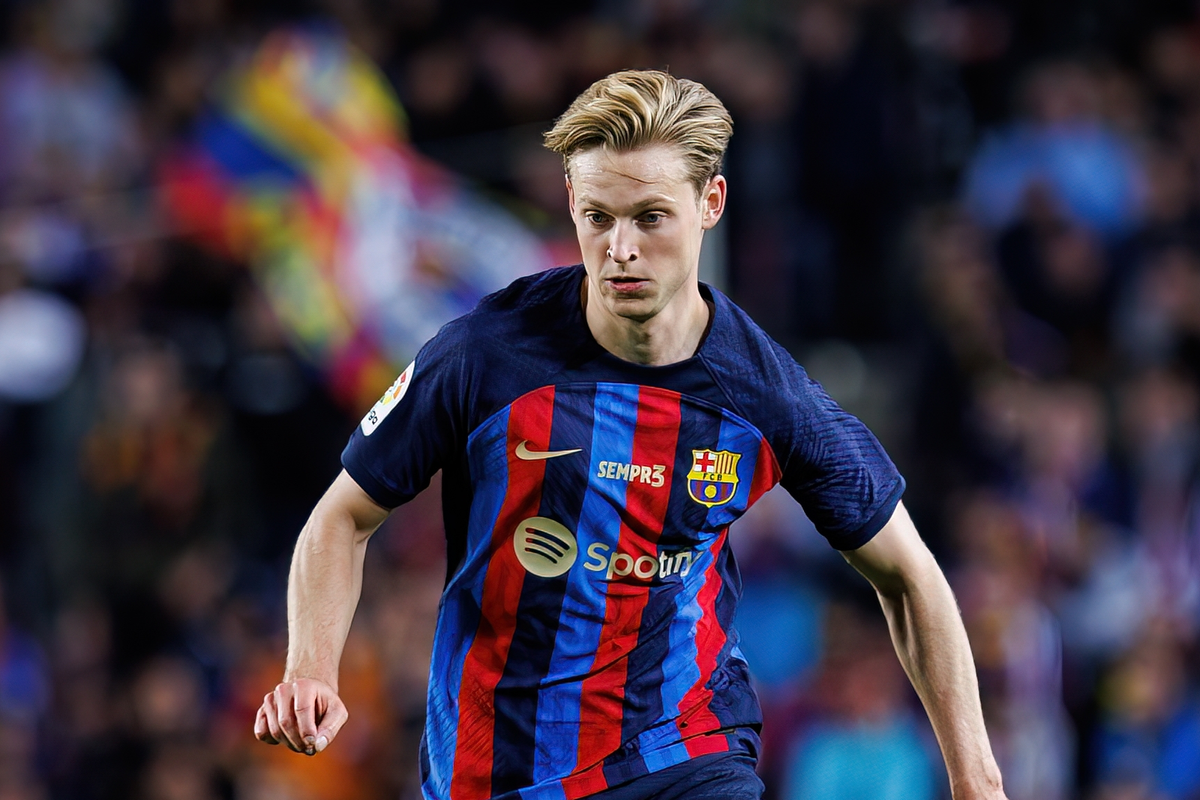
Expectations weren't high among Barca fans for the Rayo fixture, given Xavi has never really beaten them in his coaching tenure. But, for most parts of this game, Barca seemed a bit more fluid and reactive. Off-the-ball movements were slightly more dynamic with players adjusting formations to attack the ball and improving basics like ball circulation - a painful feat in the past five or six games.
However, true to Barca's character this season, the team conceded a goal from nowhere (albeit a stunning 30-yard screamer from Unai Lopez) in the first half and went in at halftime trailing - a common occurrence these days with 45 minutes left to salvage a draw or a last gasp win.
While the incident was a repetition of what we have seen for the past two months, the only silver lining was that this time Rayo didn't have Barca on the ropes through counters and transitions when the goal happened. In fact, throughout the game, Rayo did not create much, (xG-0.33) compared to Barca's (1.59), but like most games Xavi's men left their goalscoring boots back in the dressing room and Barca eventually got the equaliser from an own goal scored by Florian Lejeune who turned Alejandro Balde's cross into his own net, thereby saving Barca the blushes.
Formations
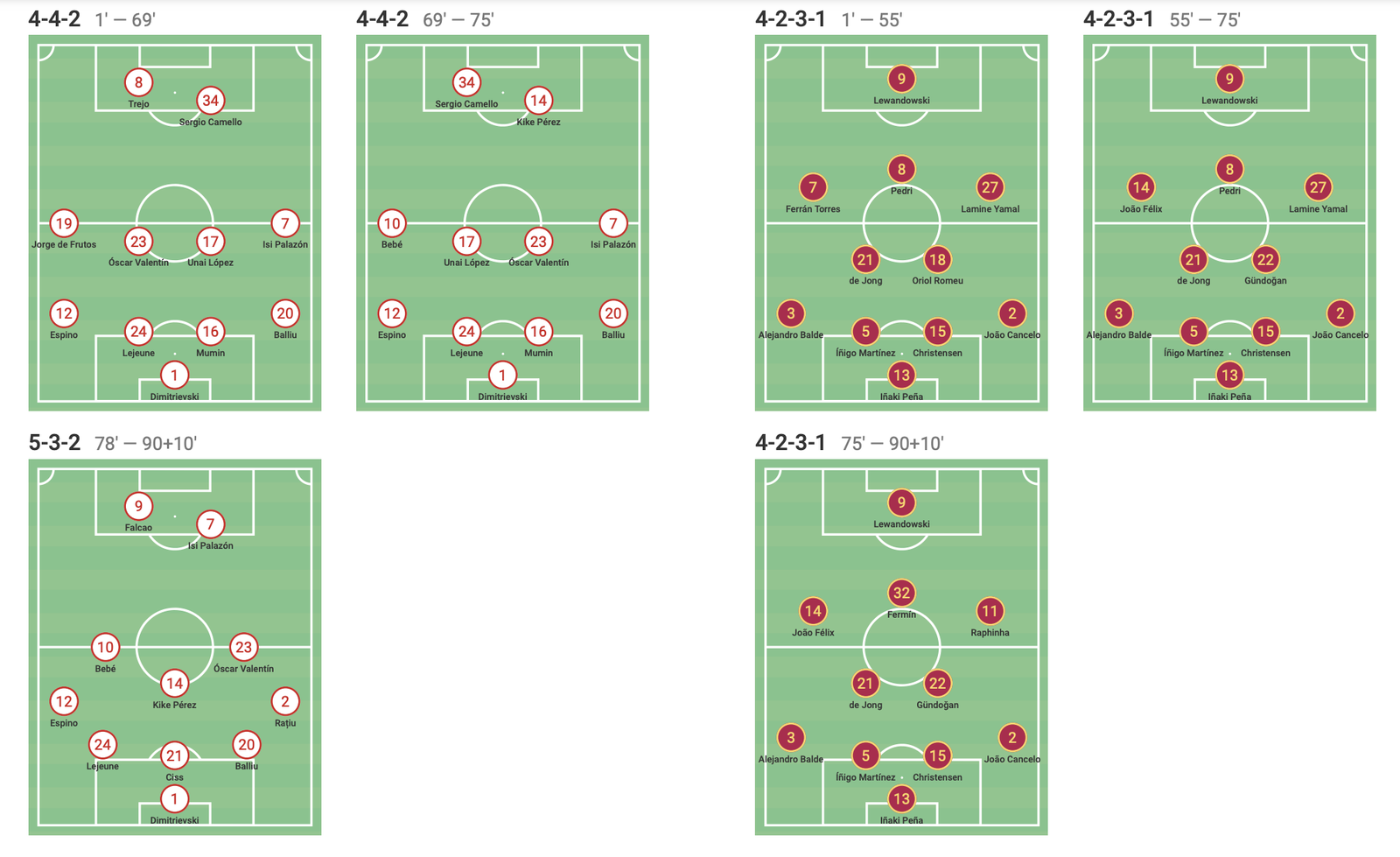
With Frenkie returning and Xavi continuing with his "Pedri as a 10" experiment, Barca mostly lined up in a 4-2-3-1 to Rayo's 4-4-2/ 5-3-2. For the first 45 minutes, Barca played a more deliberate slow-tempo game to neutralise Rayo's press and hold possession. The system was a lot more fluid with Frenkie dropping deep to provide defensive cover for Romeu with Cancelo and Balde underlapping to reduce the distance on the pitch and using Lamine as the wide threat. It did neutralise Rayo's press and transitions, but it also did not allow Barca to create that many chances. The team looked lethargic in attack, with most of it generating through Lamine on the right.
Inaki Pena should have done better on the goal he conceded, but that said Rayo went into the break with a distinct advantage. The introduction of Gundogan, Felix and Rapinha did create more attacking impetus in the second half but finishing continued to our Achilles heel.
Pass Maps
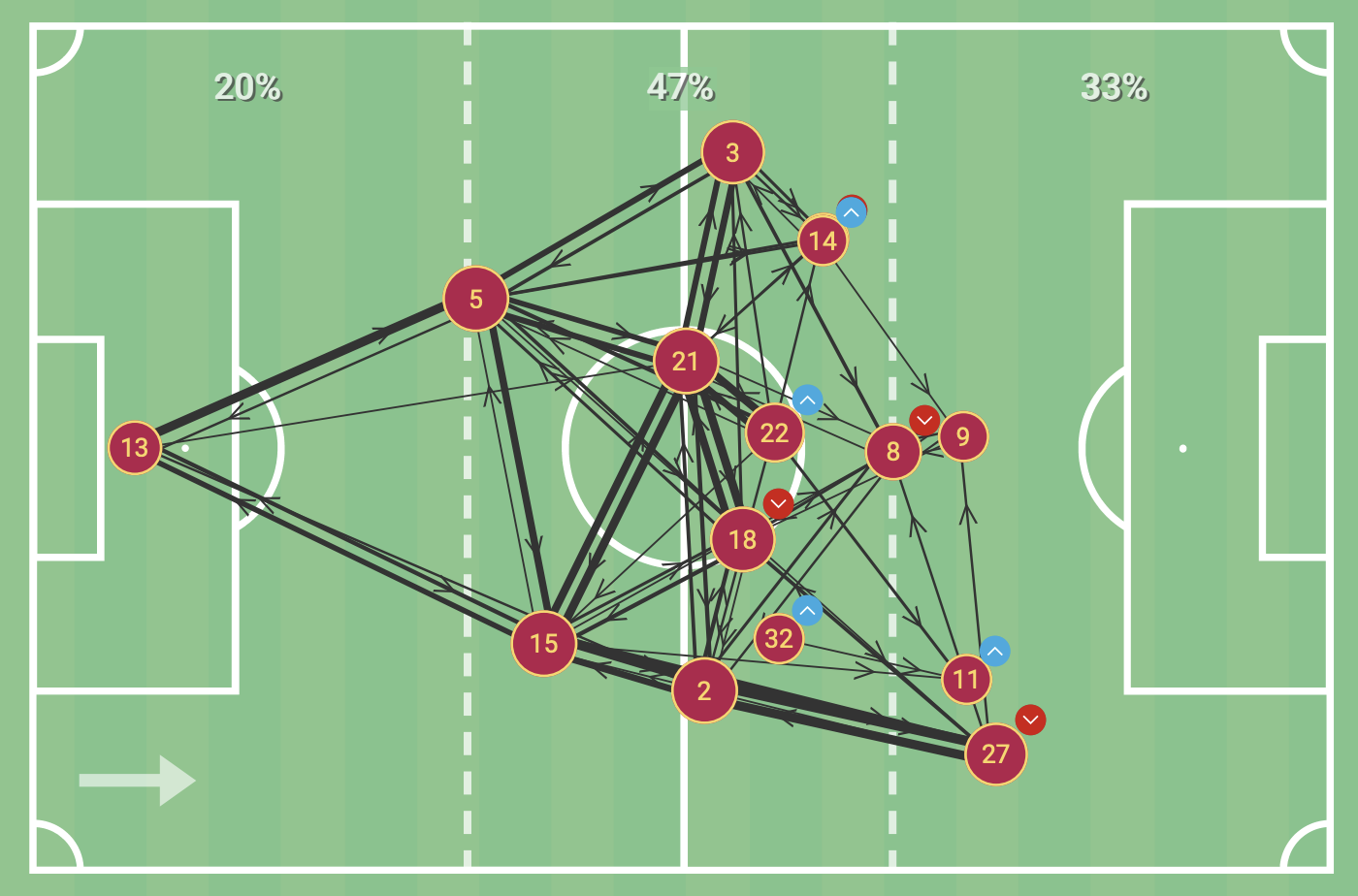
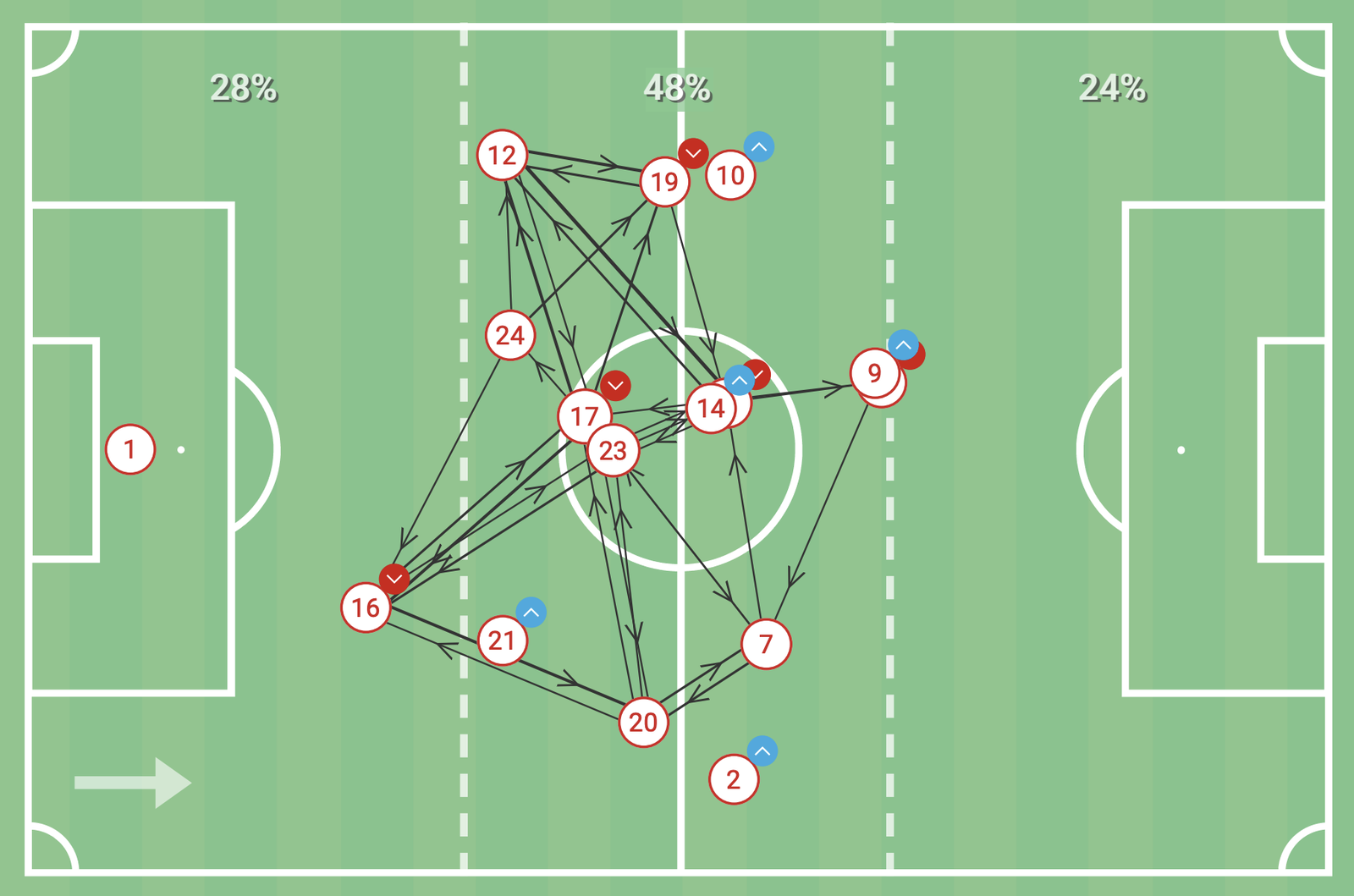
Here you can see Barca's game plan to counter Rayo's narrow-ish 4-4-2 press with Frenkie staying just above the defensive line but behind Romeu, overloading on the left and releasing the attacking output through Lamine.
Frenkie and Christensen dictated the flow from the back with Balde underlapping and Cancelo combining with Christensen, Romeu (and later Gundogan/Fermin) to create the attacking outlet using the right flank (Lamine and then Raphinha). The formation also meant that Ferran looked lost and Pedri in his "number 10" role couldn't get that much involved or provide that much creativity in the final third. It was as if Xavi was more concerned about conceding on the counter and he wanted to neutralise that at the cost of our most creative players not seeing much of the ball.
It will be interesting to see if he continues with this approach against Porto, Girona and Atleti in the upcoming games.
Pass Combinations and Progression Efficacy
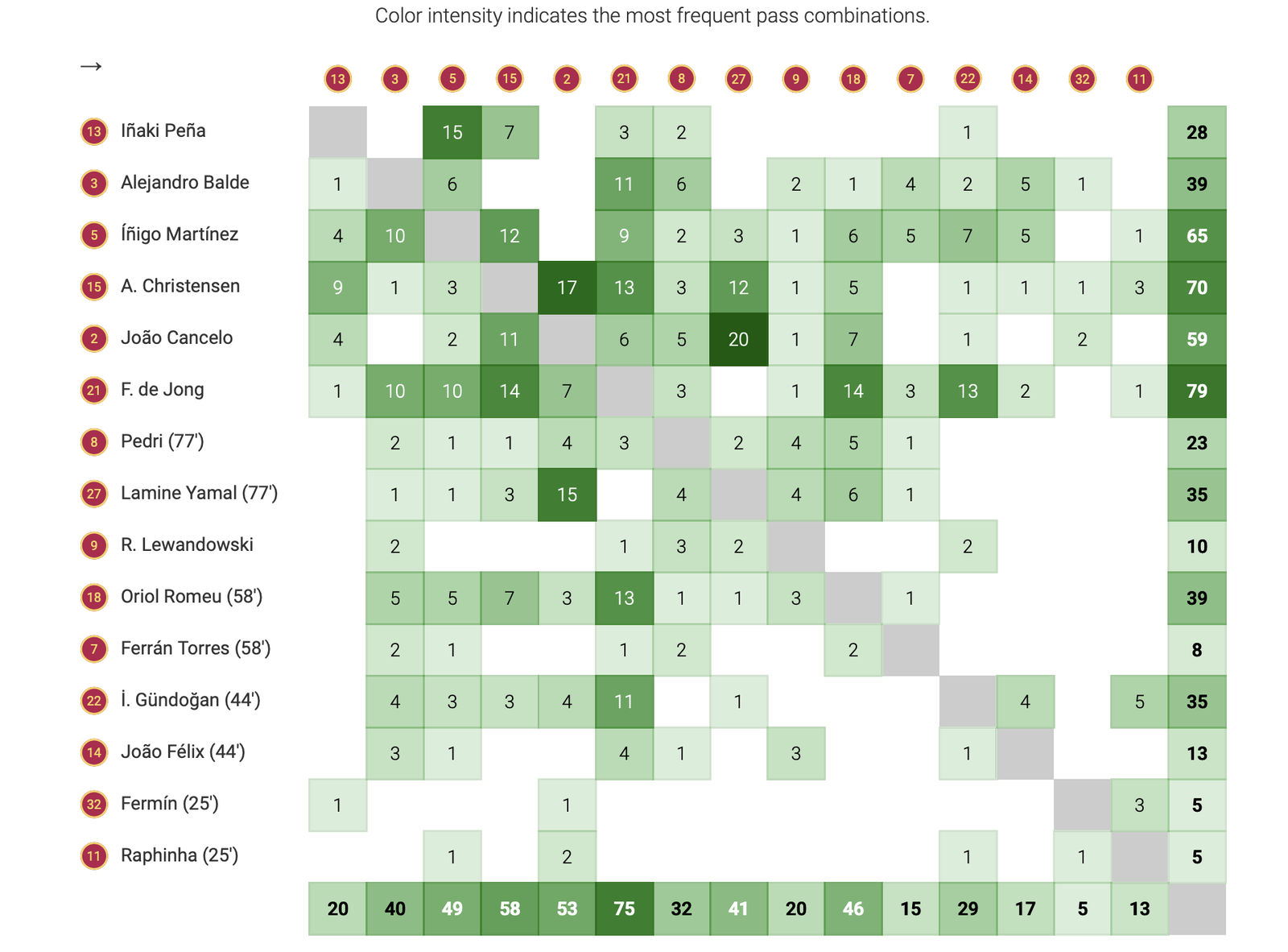
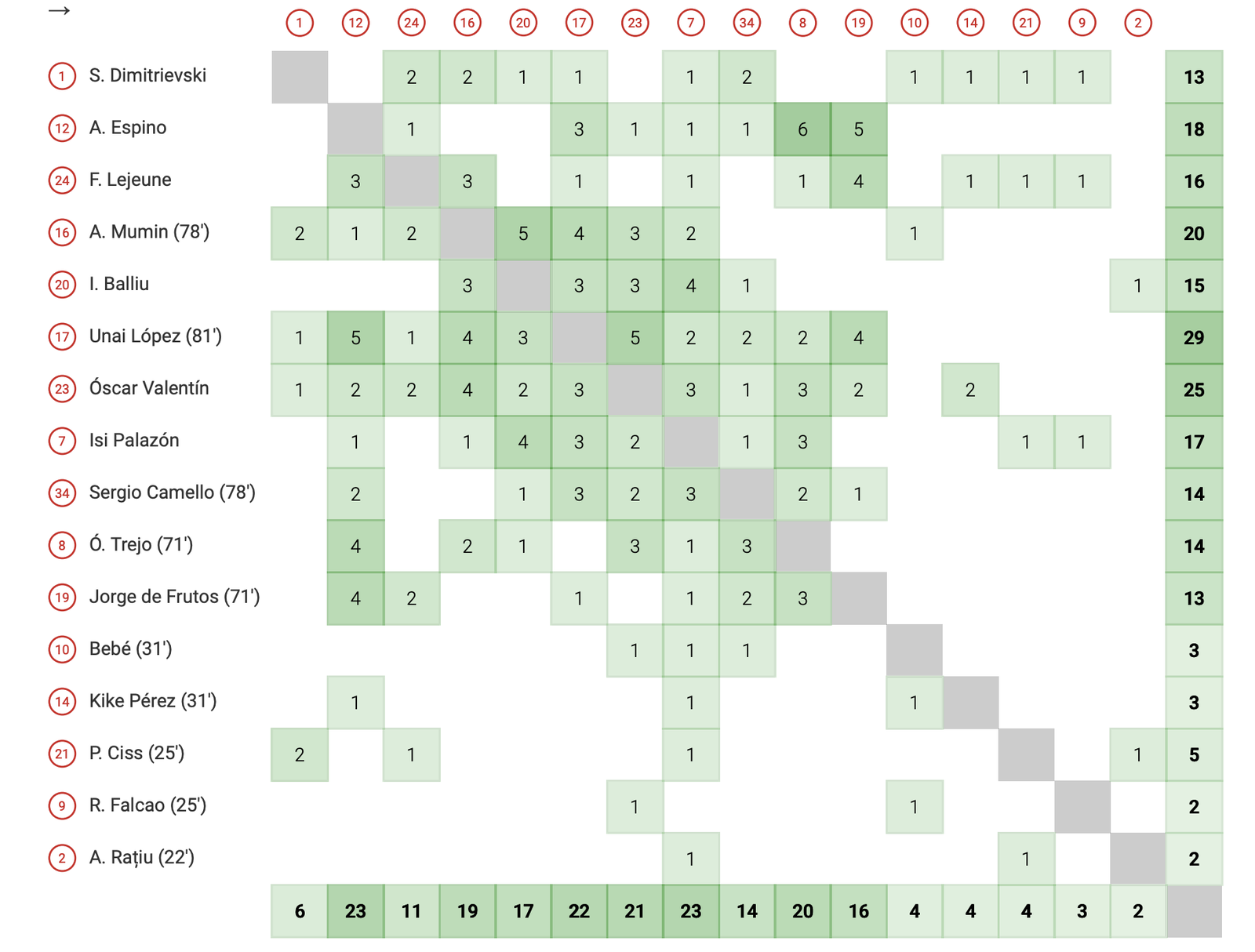
Inigo, Frenkie, Cancelo and Christensen were Barca's most industrious players on the ball, who dictated most of the game while for Rayo, Unai Lopez, Espino, Mumin and Oscar Valentin did more than enough to lead the press and deny Barca any sort of dominance for long periods, irrespective of possession percentage.
The concern here is that while Pedri is our most creative player, in this free playmaking number 10 role, against Rayo as well, his influence on dictating the game was lower as is evidenced by the data above. This is a proper conundrum for Xavi to solve on how he can use Pedri, Gundogan and Frenkie in their areas of strength. If he uses Pedri higher up to influence the attack, he takes him out of his comfort zone of playing out from deeper midfield while Gundogan is kept deeper where he is not the most effective. That said, Pedri and Frenkie both originating play from the deep is also not optimal since they both like to run with the ball and our defence would suffer.
In this current system, Gundogan is at a deeper position than Pedri and if you see both of their combination play, it's marginally lower than what you would expect more from your two best midfielders in a game. They are not seeing much of the ball in a team which is crying for creative outlets in attack.
Is Pedri being used the right way for the way this team plays? It's one of the problems Xavi needs to solve under the "systems" folder.
xG dynamics
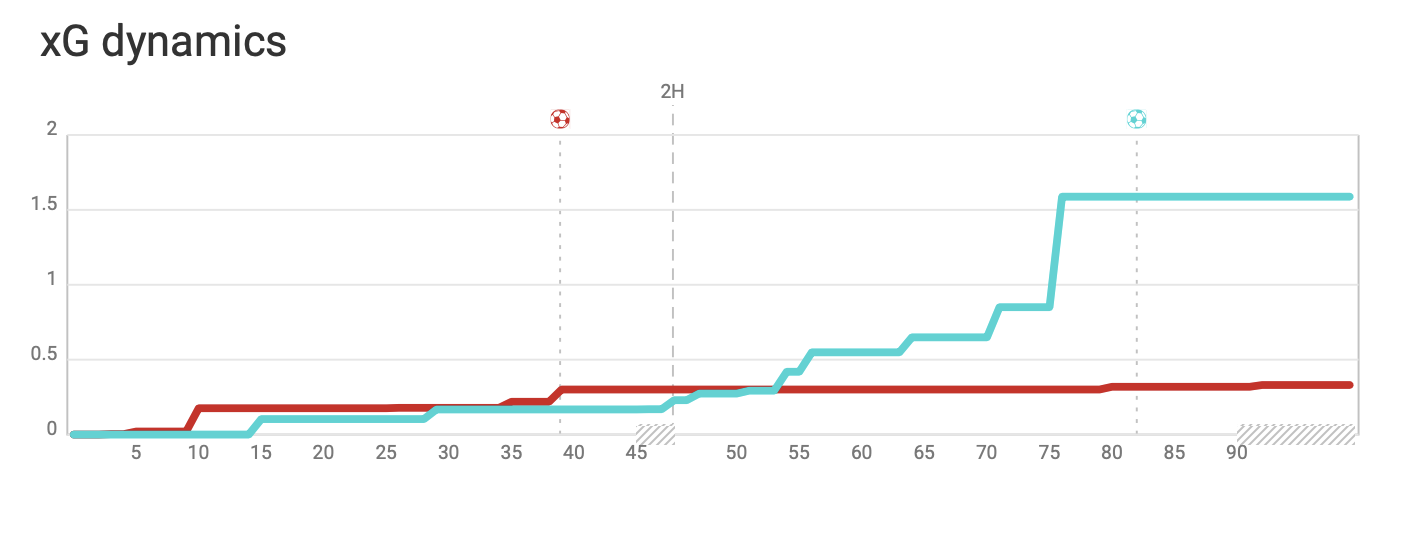
While the first half was forgettable from a chance creation POV, Bara did quite a lot in the second half (hence the silver lining), but as usual, were profligate and ended up having to depend on a "own goal", to share the spoils of the game.
xG was awesome. xE (execution) was not.
This has now become a common recurrence where Barca consistently have insipid first halves and inevitably concede. Then they scramble at the death to get an equaliser or a winner over the line. This season alone, Barca have scored 14 goals after the 80th minute and this is just not sustainable with a band-aid patch-up forward line like ours. This can work a few times, but the team has to find a way to be more consistent in attack from the first minute of the game to have more control and authority in dictating their possession into something more meaningful.
Possession and Passing Influence

It was no surprise that Barca retained a ton of possession but like most games, they struggled to create a consistent attacking threat or any sort of control over the game which then nullified the efficacy of that possession. Barca's inability to get their most creative players to control the game along with injuries, changing formations in every game and inconsistency in roles continued to affect the team's output. The Rayo game was no different.
Most mid-table teams will use long balls knowing Barca's susceptibility to conceding on the counter. Christensen was fantastic in this game, but Barca don't have an elite DM and no Pique to marshall the high line. Araujo is an awesome defender of course, but neither he nor Kounde are elite at controlling and dictating that high-line defence.
Can Christensen be used in that role? Then how does Xavi use Araujo, Kounde and Inigo? What role does Frenkie play? Repeating questions that Xavi needs to find an answer for, sooner than later.
Duels, Attacks and Recoveries

it is in some of this data where questions about our possession arise. When it comes to duels and recoveries, Barca often lose and it is a common recurrence we have seen against teams like Getafe, La Real, Athletic Club, Alaves, Rayo, Granada and Villareal, this season. Barca lack difference-makers who can win 1:1 duels consistently.
Is that also Xavi's fault? Probably no. The players have to do better. At least do basics like passing correctly using one-touch play.
When you miss duels, you lose your ability to dominate. When you lose that, you also lose your ability to dictate the tempo, which means opponents become more aggressive in their press and put your team under pressure. It's a domino effect.
Barca can have all the possession, but if they lose out on duels and recoveries then that possession will never create any meaningful end output. Barca often get bullied off the ball in the face of an intense press. Forwards get manhandled by defenders and can't find a counter-response, and their off-the-ball shape is never quite eye-pleasing.
Strange things to accept as a Barca fan, but that's the harsh truth as of today.
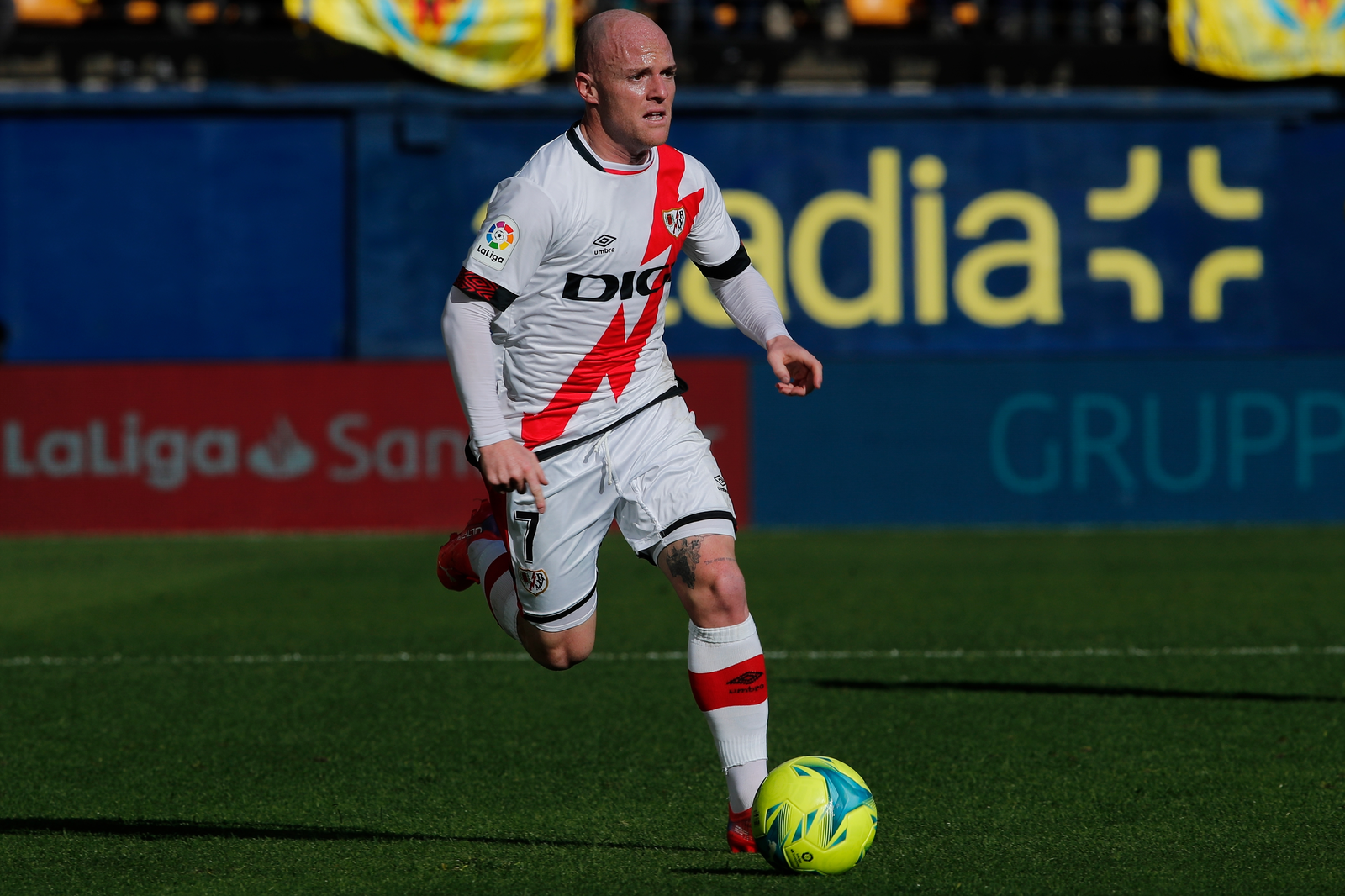
What next?
Four points off the top, in the fourth place on the table after matchday 14. Ernesto Valverde did Barca a solid by holding Girona to a draw. There is everything to play for and a good run of games means Barca can still compete for silverware. But it's increasingly looking more difficult. This month is going to be season-defining in many ways. Lose/ Draw to Porto (CL), Girona and Atleti, and Barca can go into the winter break in 6th place.
A very difficult situation for Xavi to handle cos the fanbase and media will have a field day and the entorno will be unleashed.
Is everything lost? Not quite. The team played well against Rayo in the second half and neutralised the press in the first. The business end of the season will only start in February but if the gap is too much to surmount by then, it may be too late.
Barca has an ok team. This is not an elite team and it will take a few more transfer windows and some funds to get there with the right profiles for the right roles. Maybe a new coach as well if Xavi cannot turn the tide.
But Barca does have a team which can play better than this and stay relevant. They are in control of their destiny. Still. It's now left to Xavi, to find a way to get his ideas across to the players and for the players to lift their game.
The next three games should give us clearer ideas on possible progress if any.

